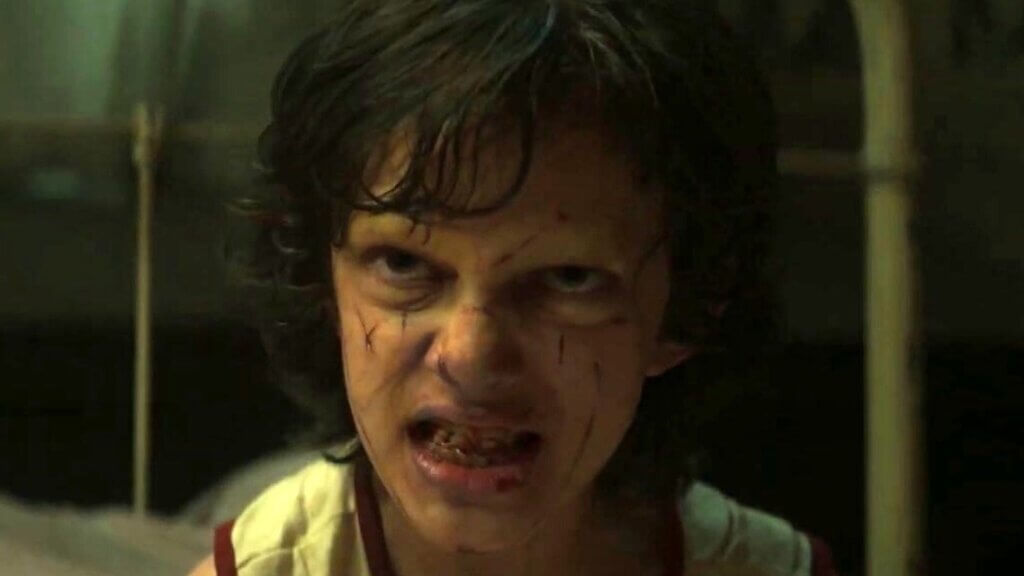<p>I hope that other film viewers stand in solidarity against films with misleading titles. If you’re like me, and you went into <em>The Pope’s Exorcist</em> (2023) expecting to see the Pope getting exorcised, I share your disappointment. It’s not that the idea of the Pope being exorcised of a demon sounded all that interesting or entertaining, but the title really writes a check that the film can’t cash. ;</p>



<p>And I truly believe this was an intentional marketing ploy. Calling it <em>The Pope’s Exorcist </em>leaves just enough room for interpretation to encourage people to come out and see what’s actually going on. Does the Pope get exercised by his personal exorcist? Does the Vatican enlist a third-party exorcist to save the Pope? Or, do the filmmakers go with the least interesting option, and simply tell a story about the Pope’s favorite little demon-fighting guy, who happens to be played by Russell Crowe, faking an Italian accent? Sadly, the answer is behind door number three. ;</p>



<p>What makes the film even more jarring is that 90% of it takes place in Spain. Not only does the Pope have very little to do with the main story, but his minion doesn’t even exercise demons in the Vatican. He has to pick up shop and visit a random family of Americans trying to refurbish a Spanish abbey they’ve recently inherited. The mother, Julia, hopes that they can sell the home quickly and move back to the U.S. with her teenage daughter, Amy, and her young son, Henry. As it turns out, the abbey is a breeding ground for all kinds of evil, and Henry takes the brunt of it. ;</p>



<p>Now things take a turn for the worse. You can tell that the screenwriters and director Julius Avery wanted to push the envelope with <em>The Pope’s Exorcist</em>. In William Friedkin’s <a href="https://amzn.to/3qrcvuc" target="_blank" rel="noreferrer noopener sponsored nofollow"><em>The Exorcist</em></a> (1973), we got to see some of the vilest and most obscene moments that could come out of a demon possession. Fast-forward 50 years, and Julius Avery prepares to wind up for a knockout punch, only to lose his nerve at the last second. ;What we&#8217;re left with is a completely toothless exercise in repeating demon tropes ad nauseam. </p>



<p>Sure, young Henry drops a few F-bombs and makes some remarks that vaguely hint at the sexual abuse of young boys by Catholic priests, but most of these “shocking” moments are too watered down to have an effect. In one instance, I actually laughed out loud because I was surprised by something that came out of the little demon&#8217;s mouth. It was the most entertaining part of the experience. But the craziest part is that filmmakers should know how to make a good demon movie by now. William Friedkin practically wrote the playbook for the demon possession subgenre, but few filmmakers (or studios) have had the courage to follow his instructions. As a result, <em>The Pope’s Exorcist</em> is just another entry in a long line of redundant misfires. ;</p>



<figure class="wp-block-image aligncenter size-large"><img src="https://philosophyinfilm.com/wp-content/uploads/2023/06/the-popes-exorcist-movie-review-2023-1024x655.jpg" alt="The Pope's Exorcist (Russel Crowe)" class="wp-image-2718"/><figcaption class="wp-element-caption"><em>The Pope&#8217;s Exorcist</em> (2023)</figcaption></figure>



<p>Even though it clearly makes an effort to shock audiences, more than most other mainstream horror, it doesn’t succeed. It feels too afraid to really address any of the real terrors it wants to mention, but can’t for the sake of propriety. Instead, it takes the same excruciatingly dull route of making demons confront priests about their lustful ways or just moments when they didn&#8217;t do a good job. It’s 2023; I would be more shocked to learn about priests who did NOT have a history of lusting after people and whatever other boring accusation the demon wants to make. </p>



<p>I’m sure that <em>The Pope’s Exorcist</em> has done well enough at the box office to be deemed a financial success, but you can practically see that intention in every frame. It’s not meant to be shocking or scary; it’s not even really meant to be good. It’s just meant to turn a profit. <em>The Pope’s Exorcist</em> treats the subject with kid gloves so that it will appeal to more people and, ultimately, make as much money as possible. It is a film that does almost nothing to hide the fact that it’s a product. All they had to do was throw in Russell Crowe as the cherry on top of the over-produced sundae. ;</p>



<p>“But movies are <em>supposed</em> to make money,” you cry. Yes, fine, in the world as we know it, movies that cost millions of dollars to produce and market should make back that money and a healthy profit. But is that all that matters? Have we become immune to low-quality products being shoved down our throats? Are we ever going to return to a time when there was a high crossover between the films that we, the discerning audience, might consider “good,” and the films that make the most money? ;</p>



<p>As you might have noticed, <em>The Pope’s Exorcist</em> has awakened a demon in me that is sick and tired of the garbage being churned out. It’s not that films can’t be products. They just shouldn’t be afraid to take risks. <em>The Pope’s Exorcist</em> makes you think that it’s going to take risks, and it almost does, before returning to the safe and comfortable genre algorithms that all but ensure the healthiest ROI.</p>



<h3 class="wp-block-heading has-medium-font-size">The Pope’s Exorcist Movie Rating: ★½ out of 5</h3>



<p>If you’d like to watch <em>The Pope’s Exorcist</em> (2023), the film is currently available to <a href="https://amzn.to/43kCYsl" target="_blank" rel="noreferrer noopener sponsored nofollow">rent or purchase via Amazon</a>. For more film reviews like this one, be sure to check out the <a href="https://philosophyinfilm.com/">Philosophy in Film homepage</a>!</p>

The Pope’s Exorcist (2023), A Toothless Horror Film With No Clear Direction

